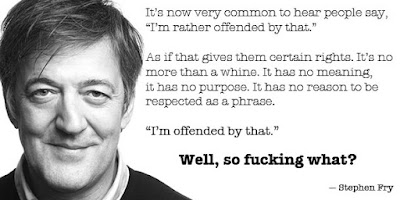On the 23rd June 2016, British
citizens will be making possibly one of the most important political decisions
in their lifetime.
A non reversible decision, which will have
significant impact on the United Kingdom both in economic and political terms.
It is, of course, the European Union
referendum. We will be deciding on whether to remain or leave the EU, which
Britain has been a part of since 1975.
In this blog post, I seek to reach out to
people of my generation. Young people who, like me, were not around or were too
young to understand, when the European Community and European Union was formed.
Young people who are perhaps apathetic
towards politics, or don’t understand the situation, or cannot see the benefits
that the UK’s membership with the European Union brings.
There are many reasons why we should remain
in the EU, and many ramifications if we do leave it.
I’m here to focus on one: the issue of
immigration.
Why?
When we talk about the EU, immigration is
one of the major concerns that people raise. It is the discussion points of
many political parties, it is regularly on the front pages of nonsense tabloid
newspapers.
If there is one issue that would swing a
young voter, who doesn’t particularly keep up with politics, it is the issue of
immigration.
The European Union allows for freedom of
movement between member states. Citizens of other EU countries can move to other
EU countries to live and work without a visa.
There are many lies, myths and
exaggerations about immigration. Most of these come from the headlines of tabloid newspapers, who seek to stir anger
and resentment towards immigrants.
Absolute rubbish headlines like these from
newspapers like The Sun, The Daily Express and The Daily Mail. Newspapers which I like to refer to as scum:
Thes
They distort the facts and use hyperbolic
language to sensationalise their stories. Most of the headlines they print are
either exaggerations or are simply are not true.
The worst thing is that these newspapers have a wide circulation in the United
Kingdom, and will most likely swing a lot of people’s votes on the EU
referendum.
Your average British person probably gets
their news from these papers, and most likely has neither the time or the
motivation to actually read up on the facts.
Worst of all, these newspapers try and play
on people’s fear and uncertainty of the foreign. They are almost encouraging
racism.
Immigration has brought a lot of benefits
to the UK. In fact, the UK needs immigration. Here’s why:-
Back in the 1950s and 1960s, many developed
western countries (including the UK) experience a huge baby boom.
The people born in these baby boom years
are now at retirement age. They worked hard all their lives to build success, and
deserve their retirement.
Unfortunately, once someone retires, two
things happen:
1) They are no longer working and therefore
are not contributing to economic growth, or paying income tax to fund
government spending.
2) They claim state pension which has to be
paid for by the government.
The United Kingdom has a large proportion
of people in retirement age, and not enough people of working age to stimulate
the economy or to pay for the pensions of the retired.
Young British people are also having less
children, and delaying starting families until later in life, in order to focus
on career.
The result of this is:
1)
The number of pensioners keeps
increasing.
2)
The working population
continues decreasing.
3)
The government has to keep
spending more on pensions, and the economy slow downs.
Why are immigrants solving this problem?
Because the vast majority of them move to the United Kingdom to work. This stimulates
the economy, and the tax from their income also helps to pay for Britain’s
retired pensioners.
Immigrants also tend to have larger
families than British people. These children of immigrants grow up, enter the
work force and again, help to stimulate the economy.
If you would like to see what happens in
alternate reality, you just need to look at Japan.
Like the United Kingdom, they also have a
very large retired population. Marriage rates amongst young Japanese are low,
and birth rates are even lower.
The key difference is that Japan has very
little immigration into the country to help grow the working population,
stimulate the economy, and to pay for their retired population through taxes.
The result? Japan’s economy has been
faltering for the past decade and shows no sign of recovery. The Japanese
government is also trillions of US dollars in debt.
It’s what could have happened to the United
Kingdom if we had gone down the same path.
If we left the EU, we could lose many of
the economic benefits that immigrants bring.
It works two ways as well. Us Brits would
not be able to travel to or work in continental Europe without a visa. There
are a lot of Brits living in EU countries at the moment.
Currently 1 million Brits live in Spain
(many of whom are retired). These Brits could find themselves in a very
difficult situation if we left the EU.
Of course, the issue of immigration and
freedom of movement in the EU is only one of a number discussions on the EU.
The EU has also given us a lot of benefits
and I am going to pick out a few that I appreciate, and believe that other
people of my generation would also appreciate.
Working Time Directive.
This is essentially
a set of laws which protects our rights and health safety at work. You can find
the full details here.
After living and working in Hong Kong for
over two years, where the labour laws are not as generous or thorough, I can
tell you that the Working Time Directive is definitely something I wish Asia
had.
Peace and stability in Europe.
The whole
point of the EU was to ensure that European countries never went to war with
each other again, by encouraging every country to trade with each other. For the
most part, this has been extremely successful.
The UK’s standing in the world.
We have to
face it. The UK punches above its weight in the world, partly because of the
history of the British Empire and partly because of the EU.
We are a country with a strong economy that
speaks a global language. We are seen by many other countries as the gateway to
Europe. We leave the EU, and our importance on the world stage diminishes.
Find them all here.
More reasons to remain?
Find them all here.
Final Thoughts…
I would like to sign off with this message
to every young British person, particularly those who are on the fence with
their decision.
Leaving the EU is not something we can try
and if we don’t like it, can decide to reverse.
Once we have left, that’s it. And we have
to accept whatever the consequences are.
This is probably the most important
political decision you will ever make in your life time. It has more wide
ranging effects than a general election.
If you think your vote won’t make a
difference to the result, think again. The most recent polls show that it is
neck and neck. A few hundred or thousands of votes could swing and decide this referendum.
If politics does not interest you, I fully
understand. But please realise the importance of this event, and please
motivate yourself this one time to take part.
You will not regret it.
On the 23rd of June 2016, please vote to remain in the European Union.















